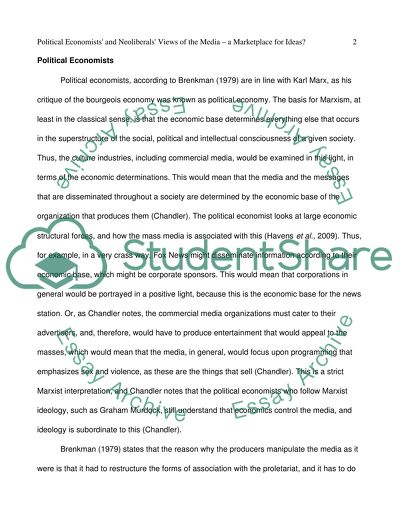Cite this document
(Political Economists' and Neoliberals' Views of the Media Literature review, n.d.)
Political Economists' and Neoliberals' Views of the Media Literature review. Retrieved from https://studentshare.org/media/1615464-1compare-and-contrast-two-perspectives-on-the-idea-that-commercial-mass-media-provide-a-marketplace-of-ideas
Political Economists' and Neoliberals' Views of the Media Literature review. Retrieved from https://studentshare.org/media/1615464-1compare-and-contrast-two-perspectives-on-the-idea-that-commercial-mass-media-provide-a-marketplace-of-ideas
(Political Economists' And Neoliberals' Views of the Media Literature Review)
Political Economists' And Neoliberals' Views of the Media Literature Review. https://studentshare.org/media/1615464-1compare-and-contrast-two-perspectives-on-the-idea-that-commercial-mass-media-provide-a-marketplace-of-ideas.
Political Economists' And Neoliberals' Views of the Media Literature Review. https://studentshare.org/media/1615464-1compare-and-contrast-two-perspectives-on-the-idea-that-commercial-mass-media-provide-a-marketplace-of-ideas.
“Political Economists' And Neoliberals' Views of the Media Literature Review”, n.d. https://studentshare.org/media/1615464-1compare-and-contrast-two-perspectives-on-the-idea-that-commercial-mass-media-provide-a-marketplace-of-ideas.


